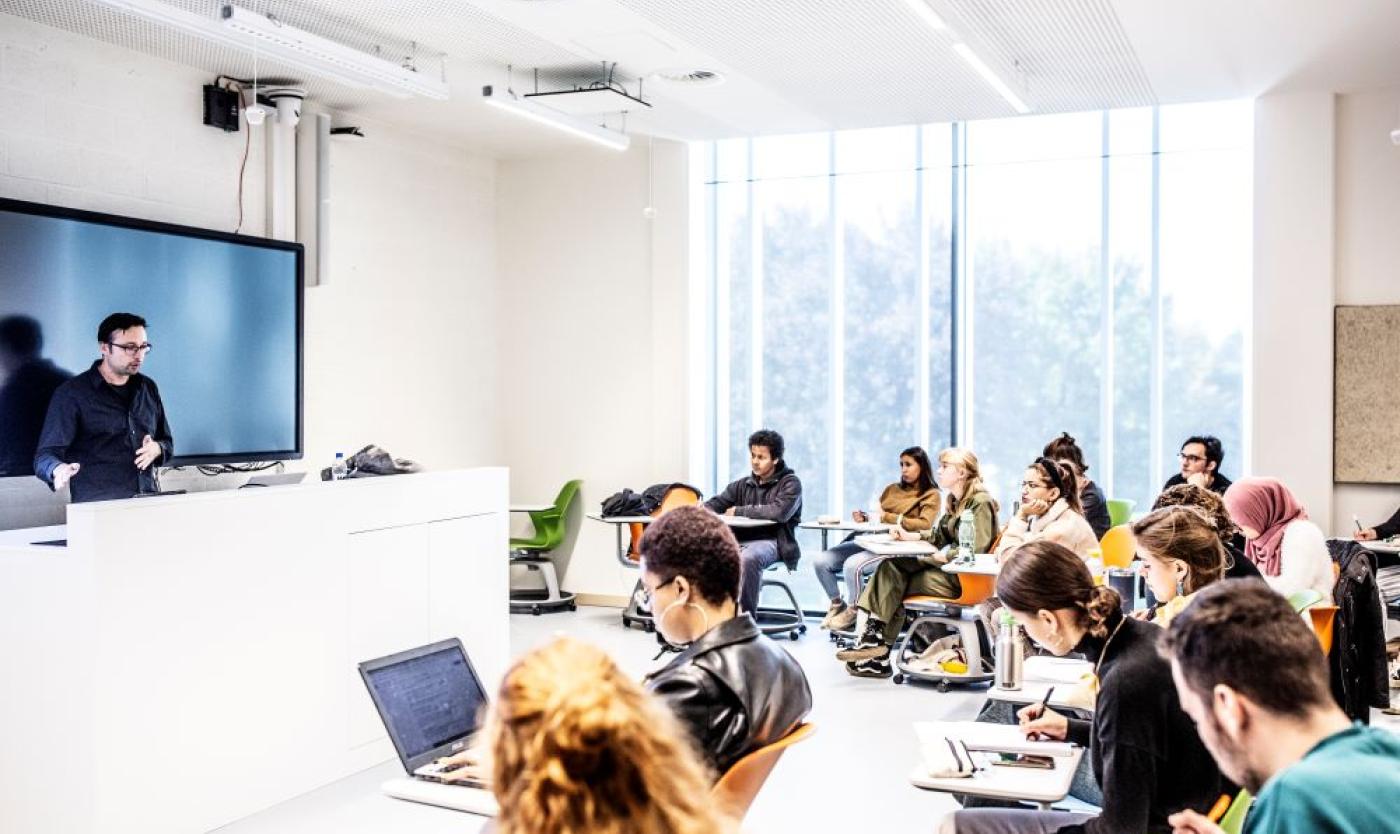

Your programme
In this programme you will learn about finance, auditing, strategic management and marketing, CSR and economics - all in an international context. The wide range of subjects from different disciplines (economics, business, ICT, entrepreneurship, etc.) will train you to take a holistic approach to analysing and solving company-specific problems, making you an international manager. *This is a daytime only programme.
Maarten Hermans | Alumnus International Business
"During my search for a master's programme focusing on doing business in an international context, I discovered the perfect match in the Master’s in International Business at VUB. This programme opens doors to numerous opportunities, where I not only expand my knowledge but also build valuable connections with people around the globe. Serving as the project lead for the trade mission to Ivory Coast, I've had the unique opportunity to enhance my skills in international negotiations and project management. I am deeply grateful for this opportunity and would recommend it to anyone!"
Fast forward to:
Programme content
Preparatory programme
Prospective students with a Flemish 'Bachelor of Science Handelsingenieur', 'Bachelor of Science Toegepaste Economische Wetenschappen' or a 'Bachelor of Science in Business Economics' are admitted directly to the programme.
For prospective students with different degrees, admission is based on evaluation of their academic background, results, motivation, and language skills. They must have an academic bachelor’s degree in Business Administration, International Business, Business Economics, or a similar field with specific minimum credits in various domains.
Students who lack a few credits (up to 18 ECTS credits) may still be eligible through an ad hoc preparatory programme, comprising specific courses. Regardless, all prospective students should apply directly to the master's programme, not the preparatory programme.
Check our credit requirements here Contact the study path counselor at your faculty
Programme content
This programme offers you a wide variety of courses, focusing on the current international economic context, on advanced business and on doing business in an international context. The objective: preparing you for a future as an international manager.
The first year consists solely of compulsory courses. In the second year, you can personalise your curriculum and you will conclude an academic research for the master's thesis. If you are interested in starting a PhD after your master's degree you can join a pre-doctoral track.
To gain practical experience the International Business programme offers various practical courses during the second master year:
- Trade Mission (6 credits)
- Internship (6 credits-20 workdays or 12 credits-40 workdays or more)
- International Business Project (6 credits)
Programme subjects
Review the subjects included in your programme.
Master
Preparatory programme
Studying abroad - Exchange Programmes
Solvay Business School has agreements with more than 30 universities inside and outside the European borders. Students can spend one semester or even a full academic year abroad during their studies. Due to the large number of available spots within the faculty, almost all students interested in an exchange can effectively go abroad.
Business & Technology or International Business: understanding the differences
With a master's in International Business you are equipped to excel in international economics, trade, finance, and social aspects like corporate social responsibility and social entrepreneurship.
The master's in Business Engineering: Business & Technology focuses on international business environments, particularly in high-tech sectors. The programme trains you to bridge the gap between engineers and business professionals, with a focus on (technological) entrepreneurship.
While both programmes cover sustainability topics, the master's in International Business focuses on international economic and policy-related elements. The master's in Business & Technology takes a more quantitative approach with emphasis on data analytics, entrepreneurship, and spearheading technologies such as biotechnology, photonics, materials, and software.